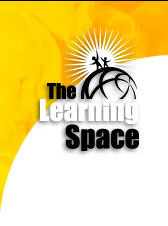Membership Information
About The Learning Space
The Learning Space is a teacher-run non-profit, 501 (c) (3) organization whose mission is to help teachers and educators to integrate technology directly in classrooms to revolutionize teaching and learning. The Learning Space started as a grassroots network of 7,000 teachers in Washington state through a generous grant from the US WEST Foundation and with help from the National Education Association and the Washington Education Association. The Learning Space is adding new individual members as well as creating chapters in districts and states across the United States and Canada.
There is a great deal of training and professional development available for teachers to assist them in integrating technology in the classroom. However, once a teacher is back in their classroom, there is typically no infrastructure or mechanisms in place to allow them to continue to help, support and collaborate with each other in a meaningful way. The Learning Space fills this major void by creating an in-person and online, neutral support network of teachers. The network provides in-person support through cadres of local teacher leaders in buildings and districts as well as broader support by connecting these local networks into regional and national groups online.
Perhaps most importantly, The Learning Space is a neutral network of currently practicing teachers, educators, administrators and tech directors - not organized around a particular product. The Learning Space is also dedicated to the mission of keeping the best and brightest teachers in the classroom while paying them for additional services they may perform in the areas of training, training development, facilitation of collaborative projects and other product/project development activities.
The Learning Space provides ongoing support to its members through
- in-person practical training and workshops - developed and delivered by practicing teachers
- right-in-class teacher-to-teacher mentoring
- web site and online community activities,
- special collaborative classroom projects using the Internet and videoconferencing
- regional community events such as Tomorrow's Classroom
MORE >
|














